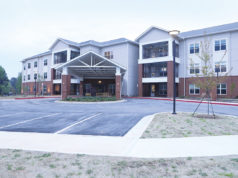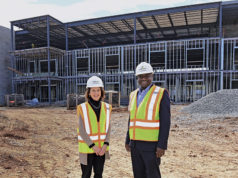Don’t let someone else determine how your assets are distributed.
By Cory Sekine-Pettite
According to Caring.com, a leading online destination for caregivers seeking information and support as they care for aging parents, just 32 percent of Americans have a will. That figure jumps to 45 percent for older Americans (55 years old and older), but still leaves most seniors and their families vulnerable to disputes and lawsuits when it comes time to settle affairs.
Caring reports that 40 percent of people who don’t have a will say it’s because they don’t have enough assets to leave anyone. Notably, lower-income Americans were twice as likely to give this reason as the highest-income group.
“If you’re Warren Buffet or Bill Gates and you have billions of dollars, then you’ve got a big margin of error that you could make [in estate planning]. You could make some big mistakes, and [the family members] are still going to get a ton of money. But when your means are more modest, that’s when you really have to be careful, because if you’ve got a relatively a small estate, a mistake makes a much bigger impact,” says Dawn Levine, Attorney and Managing Partner with Georgia Wills, Trusts, & Probate Firm LLC.
The Marietta-based firm has helped thousands of clients with their estate planning needs, from basic wills to complex tax planning. Levine, a founding partner, has seen first-hand how the lack of estate planning can negatively impact lives and lead to years of complex and expensive litigation. That experience led her to law school. “It became my personal mission to make sure that the people we serve are not going to be accidentally damaged because I don’t know what I’m doing or because they’re not aware of what they need to know,” Levine said. “So, I do take it very, very personally. Every single client we help is an opportunity for me to rectify the wrongs of the past.”
Everyone needs a will
Levine says everyone needs a will — particularly if you own a home — because we don’t want to financially harm those we leave behind. The one thing that is most likely to trigger the need for probate (the judicial process whereby a will is “proved” in a court of law and accepted as a valid public document) is a house, she says. “Sometimes, the state of Georgia has figured out who’s going to inherit from you if you don’t [document] anything, and that might not be who you think it is,” Levine said. “There’s a lot of people who are married who think, ‘Oh, my husband or my wife, they’re going to automatically get everything.’ No, that’s not how it works. That’s not what the state of Georgia says.”
It is important to have some instructions in place, a will or trust or something, Levine warns, so that you’ve laid out explicitly who’s going to oversee your estate and who’s going to inherit what. “Even that simple question of who’s going to be in charge, I have seen big fights break out,” she said. “If a young person passes away unexpectedly, if they were killed in a car accident, there’s a lawsuit that might come out of that. And what if mom and dad got divorced? Mom and dad might be the closest relatives [to the deceased], but if they hate each other’s guts, they’re going to have a real battle about who’s going to be in charge. So, I think it’s very important to put pen to paper, get that will done so that — even if you don’t have a ton of assets — it’s clear who’s going to be in charge and who’s going to receive the assets.”
Don’t wait. Get started today.
Key data from Caring’s survey indicates that one out of four Americans never intends to make a will while 43 percent say they will wait until there’s a health crisis. Further, the survey reports that younger Americans (aged 18-34) are engaging in estate planning at higher rates since the pandemic — going from 16 percent in 2020 to 24 percent in 2024. During the same time, the rate of middle-aged and older adults with wills decreased by 7 percent and 10 percent, respectively.

“I think a lot of people are stymied from getting started because they think they have to figure out all the answers before they start the conversation. And that’s just wrong thinking,” Levine said. An experienced estate planning attorney can guide you in the right direction and make the process much simpler than you realize. “You don’t have to have all the answers,” she continued. “You just have to get the conversation started. Reach out to an estate planning attorney, and then they’re going to just pull information out of you.”
For seniors, Levine says, estate planning is a more real activity because death is a bit closer. It’s no longer an abstract concept we can push to the back of our minds. “You have people your same age who passed away, and you might lose friends or neighbors or family members, and it just feels more real to you,” she says. “…There’s more of a focus on ‘how do I use my estate planning to further my values within the family? How do I take care of these people that I’m leaving behind if something happens to me?’”
For example, Levine suggests you ask yourself: Are there people in your life who need more consideration than others? Are there any family members who have special needs? Not necessarily in the disability sense, but does this person need something different than what your other loved ones need? And don’t forget to think about yourself as well. “We live such a long time now; the chance of [mental] incapacity during your lifetime is much greater than they ever were for my grandparents, for example,” Levine said. “People used to not live necessarily long enough to have those kinds of capacity issues, but they’re just becoming much more prevalent. [You] need to give some consideration to those kinds of health issues.”
Certainly, for many of us, the subject of dying and estate planning can be off-putting to say the least. But Levine and the team at Georgia Wills, Trusts, & Probate Firm can make this less daunting. “We try to be calm and comforting to clients,” she said. “We also do a lot of educational work to help them get prepared for things. So, we’ve got a whole series of videos of us talking about topics that are going to be relevant. Clients get a whole bunch of those before they get to see us. And then after our appointment, we have others that we send to them during the process to help them feel comfortable with what we’re doing, to help them get familiar with the terms so they’re not blindsided.”
One such video covers the healthcare directive (formerly known as the living will) that walks clients through end-of-life issues and life-sustaining medical care. “We’ve got a video that goes over the questions that are in that document so that they’ve got a chance to digest that before they have to actually make decisions,” Levine said. “We find that the videos are very helpful for getting them more comfortable with the topics that we’ll be talking about.”
How long will this take?
Of course, the process of making a will can vary from family to family, depending on our wants, needs, and assets, but Levine says the average process for clients at Georgia Wills, Trusts, & Probate Firm is just three meetings. “So, there’s an initial meeting where we talk about — just in general terms — who are we taking care of? What do we want to do for them? Like a brainstorming session,” she said. “Then there’s going to be another meeting where we review the documents with them, cover to cover, just to make sure that we’ve thought about everything; we’ve got the right people in the right spot, we haven’t left anybody out, et cetera. Then there’s usually a separate signing appointment [after all revisions have been completed].”
Once you’ve taken this major step, you may be wondering about updating your will. How often should you do this? What circumstances warrant an update? Levine tells her clients to consider updating their wills every five years — or sooner if there’s some major event in their lives. “That could be any number of things,” she said. “If you get an inheritance or somebody dies, or somebody has children, or somebody got divorced. …If there’s any major change in their life, then we usually recommend they reach out to us.” These new circumstances already may be covered through another provision in your will, but your attorney is the only person qualified to make that determination.
Congratulations! You’ve made a will. Where should you keep it?
No, you can’t just keep a locked PDF file on your laptop. The law states there still must be paper copies of your will. “We need original signatures,” Levine said. Clients retain the original documents and their lawyer keeps a copy. Levine tells her clients to keep their documents in a fireproof safe. “Do not put it in a safe deposit box,” she added. “Things have gotten much more rigid and strict with banking and their rules. So, if something’s in a safe deposit box and [the owner] has passed away, we might have to get a court order to open that safe deposit box.”
As Levine says, there’s no end to the number of people her firm could help if more people get comfortable with the idea that we all need to make a will. She knows from experience that the alternative is messy and devastating. She and her fellow staff attorneys are adept at comforting clients and guiding them through the process. It doesn’t have to be difficult. Just start the conversation.
Things Your Estate Planning Lawyer Might Not Tell You
By Dawn Levine
1. A will is like a wedding dress. You only use it once so, it better cover your assets.
2. Legal Zoom keeps probate lawyers fat and happy.
3. Shortcuts on estate planning lead to long trips to the courthouse.
4. When you die, a will, unlike a trust, becomes a public document for any wacko with an internet connection to see.
5. Spouses do not necessarily inherit everything.
6. Legally, step-children are not related to you for inheritance purposes.
7. If your lawyer does traffic tickets, car crashes and wills, you probably have the wrong lawyer.
8. It is easy to accidentally disinherit someone.
9. If you leave someone a dollar in your will, the lawyers may go home with all the money.
Dog Days of Summer Fundraiser
 On Aug. 10, 2024, the Dog Days of Summer fundraiser was held for Officer Barney, the Crisis Response Dog. Officer Barney with Officer Hill of the Marietta Police Department, serve the Marietta City Schools. Their role is to de-escalate situations and calm children in crisis. This can be in a day-to-day situation in school and in a courtroom when a child must testify.
On Aug. 10, 2024, the Dog Days of Summer fundraiser was held for Officer Barney, the Crisis Response Dog. Officer Barney with Officer Hill of the Marietta Police Department, serve the Marietta City Schools. Their role is to de-escalate situations and calm children in crisis. This can be in a day-to-day situation in school and in a courtroom when a child must testify.
Officer Barney and Officer Hill have even been called upon to de-escalate a suicidal situation for an adult in the community on occasion. Officer Barney’s support is not covered by the Marietta Police Department budget but rather by private donations through the Marietta Schools Foundation. The goal of the fundraiser was to secure enough funds for a full year of support for Officer Barney.
The event was held at Georgia Wills, Trusts, & Probate Firm, LLC, just off Marietta Square. The fundraiser was hosted by law partners Dawn Levine and Amanda Riedling. At the event, Officer Barney and Officer Hill did a meet-and-greet with more than 70 members of the community. Officer Hill introduced the program he built and shared some stories of the work he and Barney have done together in our community. The event raised nearly $3,000 in donations from private donors. The law firm donated the balance to support Barney’s annual care, including his costly certifications required for his position.
Georgia Wills, Trusts, & Probate Firm LLC
192 Church St.,
Marietta, GA 30060
770.758.6832
gawtpfirm.com




